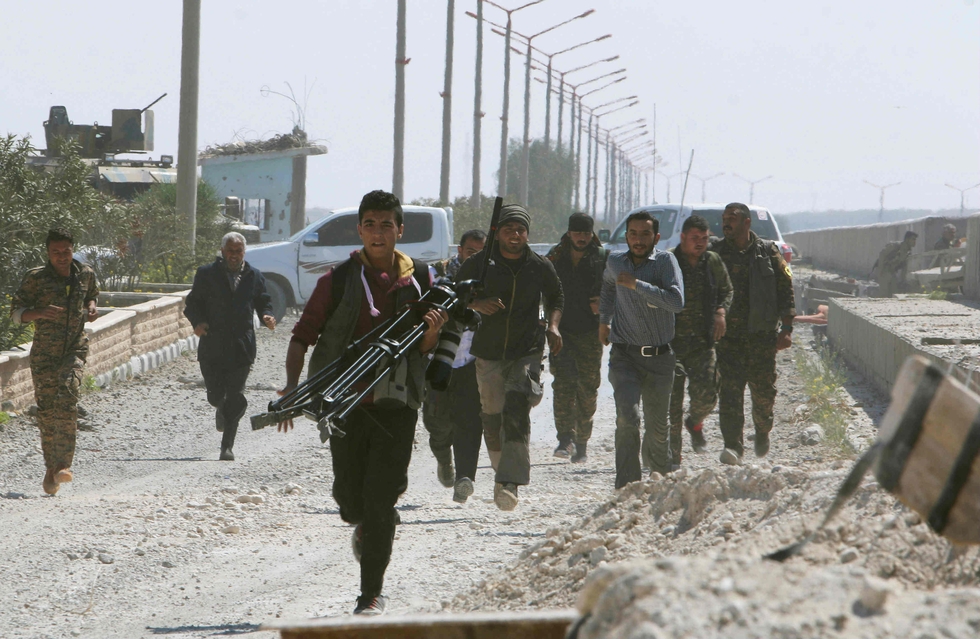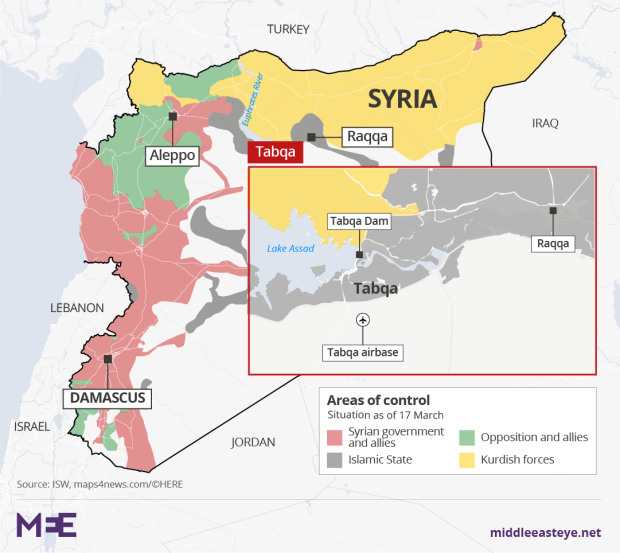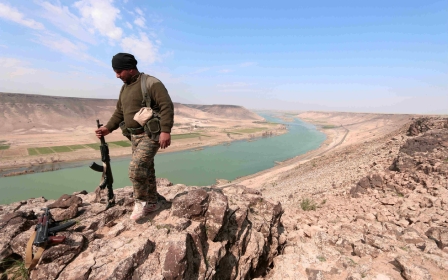Islamic State shells Tabqa dam in Syria

The Islamic State group shelled positions held by the US-backed Syrian Democratic Forces (SDF) at the Tabqa Dam on the Euphrates River on Wednesday, forcing engineers to temporarily halt efforts to ease the water pressure, a Reuters witness said.
IS fired from the southern end of the dam, which it controls, and at least two explosions were heard. No one was injured. The engineers, who are working to open the spillways to relieve water pressure in the dam, later returned to work.
The SDF, an alliance of militias including the Kurdish YPG and Arab fighters, last week captured the northern part of the dam, which is a major strategic objective of the US-backed campaign to isolate and capture the IS-held city of Raqqa, some 40 km to the east.
The engineers were also at the dam on Tuesday carrying out an assessment as they try to open the two spillways, one of which is half open and the other is completely shut.
The SDF and US-led coalition have said the dam is not in danger after the Syrian government on Sunday said it had been damaged by US air strikes and could collapse, with the risk of catastrophic flooding.
IS has also said the dam's operating systems were not working properly and it was vulnerable to collapse.
The head of the Kurdish YPG militia, fighting in the Raqqa campaign as part of the SDF alliance, has said the final assault on the city will begin in early April.
Homs bus bombing
Elsewhere on Wednesday, a bomb attack on a bus in Syria's third city Homs killed five people and wounded at least seven, state media reported.
The blast hit a small bus carrying students on their way to university in the Al-Zahraa neighbourhood, which has repeatedly been targeted in bombings.
Most of the neighbourhood's residents belong to the same Alawite religious sect as President Bashar al-Assad.
In December, four people were killed in a blast at a Red Crescent centre in the neighbourhood, and in February a double bomb attack claimed by IS killed 57 people.Interviewed on state television, Homs governor Talal Barazi said four of those killed were female students heading to university on the bus.
Most of Homs is held by the government, with the exception of the Waer district, where the last phase of an evacuation is under way under a deal between the government and rebels.
Three waves of rebels and their families had already left Waer under an agreement first reached in December 2015, but subsequent evacuations stalled before a new deal was reached earlier this month.
The neighbourhood has been subject to a siege and bombardment by the army.
Rebel groups criticise so-called "reconciliation" deals like that agreed in Waer, saying they are forced into them by siege tactics.
Stay informed with MEE's newsletters
Sign up to get the latest alerts, insights and analysis, starting with Turkey Unpacked
Middle East Eye delivers independent and unrivalled coverage and analysis of the Middle East, North Africa and beyond. To learn more about republishing this content and the associated fees, please fill out this form. More about MEE can be found here.






